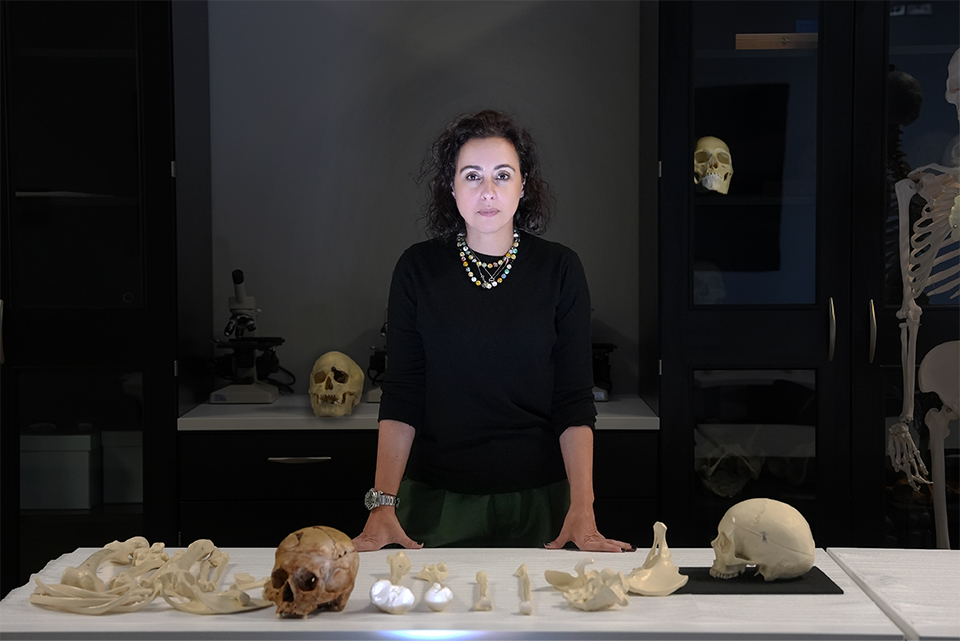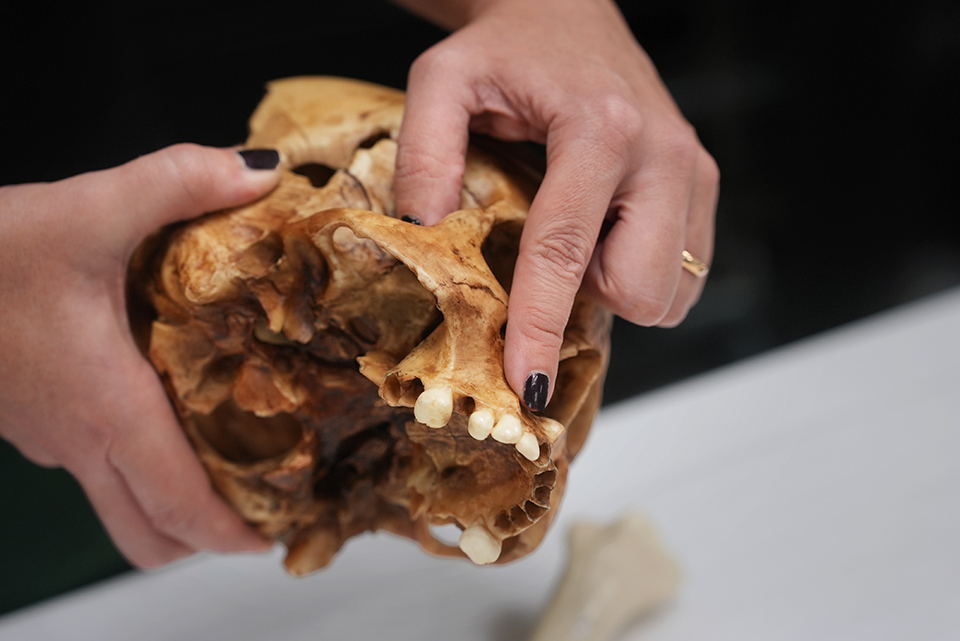By Maria Gonzalez
RIO GRANDE VALLEY, TEXAS – FEB. 16, 2024 – UTRGV has been awarded a $467,325 grant from the U.S. Department of Justice's National Institute of Justice (NIJ) for a forensic research project aimed at transforming age-at-death estimation in forensic science.
This is the first prime NIJ grant awarded to UTRGV.
Led by Dr. Carina Marques – assistant professor in the Department of Anthropology and the School of Integrative Biological and Chemical Sciences, and principal investigator on the grant – the project integrates traditional histological (tissue-based) dental methods with artificial intelligence technology to address limitations in current age-estimation techniques.
“Traditionally, forensic anthropologists and pathologists rely on skeletal features to estimate the age of unidentified decedents, whether partially or fully skeletonized,” Marques said.
Age-at-death estimation is an important part of the biological profile in forensic science; however, current methods exhibit low accuracy because they provide extremely wide age-at-death intervals.
“However, current age-at-death methods are not as effective as we need. Our project aims to improve these methods by examining the cementum rings in teeth, a technique especially relevant in our region for aiding the identification of deceased migrants along the Texas-Mexico border.”
Marques’ project represents a significant shift in forensic science, transitioning from traditional skeletal feature analysis to a more precise and consistent study of dental cementum, known as cementochronology.
This approach not only aligns advanced dental age-at-death estimation with the high standards of the criminal justice system, but also makes it more accessible for routine forensic use.
The key goals of the project include:
- Standardizing dental tissue preparation.
- Validating cementochronology's accuracy.
- Assessing age and season-of-death estimation in various climates.
- Developing an AI-powered web applicationfor cementochronology.
- And creating comprehensive training materials for forensic professionals.
“By integrating dental cementum histology with AI, we aim to provide a standardized and user-friendly tool for forensic experts, enhancing the precision of age-at-death estimation for medicolegal identification,” Marques said.
Dr. Can (John) Saygin, senior vice president for Research and dean of the Graduate College, said Marques’ research has weighty potential for forensic science, especially given its alignment with the strict requirements of the legal system.
“Dr. Marques' groundbreaking research in AI-based cementochronology, as featured in this important project, further illustrates UTRGV's dedication to advancing the field,” he said. “Her work is setting new standards in forensic science and exemplifies UTRGV’s commitment to innovative research.”
The project, “Developing and Validating Standards for Dental Cementum Age-at-Death and Season-of-Death Estimation,” runs from January 2024 through December 2026, and is a collaborative effort involving the University of Lille, France, and co-principal investigators Dr. B. Bertrand and Dr. D. Navega.
Partner institutions include the University of Arkansas for Medical Sciences (Dr. F. Prior), Texas State University (Dr. K. Spradley), and the University of Coimbra (Dr. E. Cunha) in Portugal.
ABOUT UTRGV
The University of Texas Rio Grande Valley (UTRGV) was created by the Texas Legislature in 2013 as the first major public university of the 21st century in Texas. This transformative initiative provided the opportunity to expand educational opportunities in the Rio Grande Valley, including a new School of Medicine and a School of Podiatry, and made it possible for residents of the region to benefit from the Permanent University Fund – a public endowment contributing support to the University of Texas System and other institutions.
UTRGV has campuses and off-campus research and teaching sites throughout the Rio Grande Valley including Brownsville (formerly The University of Texas at Brownsville campus), Edinburg (formerly The University of Texas-Pan American campus), Harlingen, Weslaco, McAllen, Port Isabel, Rio Grande City and South Padre Island. UTRGV, a comprehensive academic institution, enrolled its first class in the fall of 2015; the School of Medicine welcomed its first class in the summer of 2016, and the School of Podiatric Medicine in the fall of 2022.


